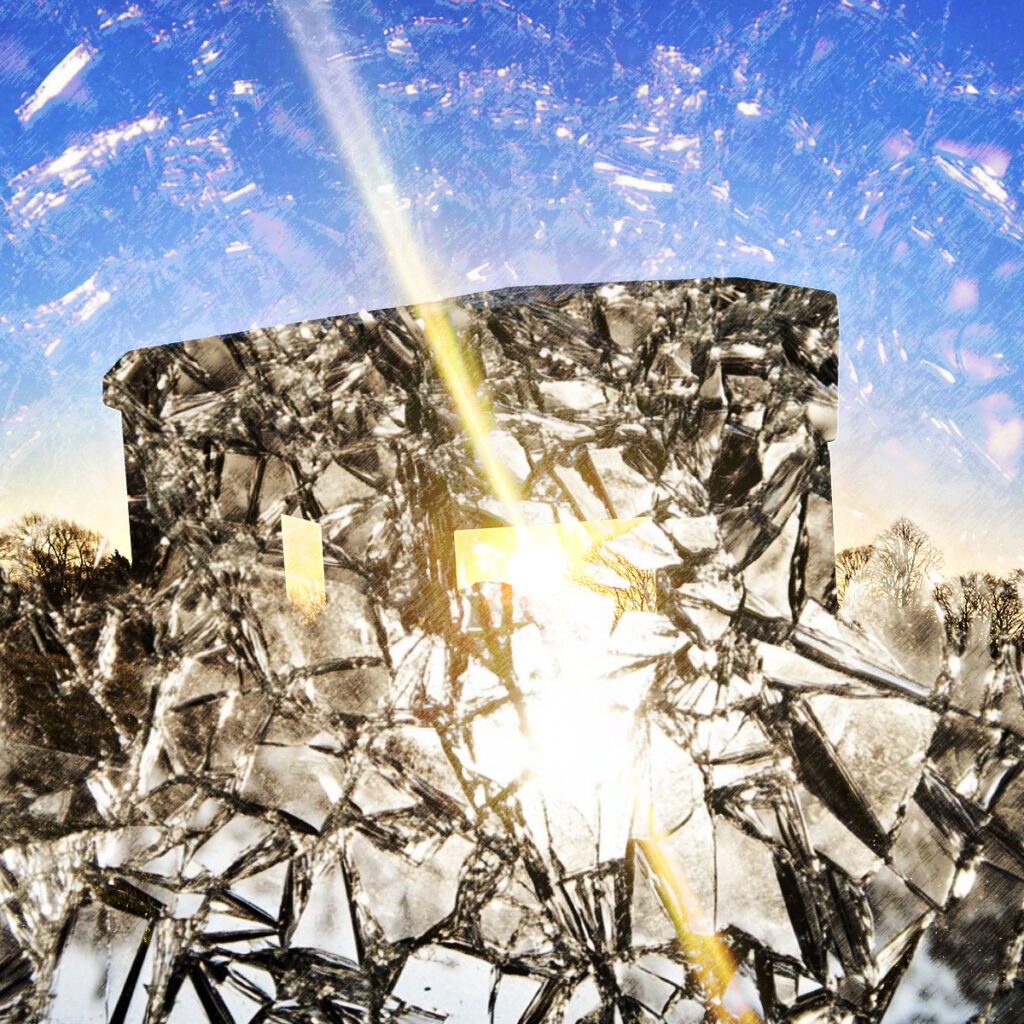Happiness is not what we think it is.
A state of perpetual perfection where every single, minute through expansive aspect of our experience is just as we would have it be and remains so indefinitely.
Always successful. Always entertained. Always rich. Always beautiful. Always young. Always loved. Always free. Always alive. Always and forever, everything.
Just so.
Held in place.
Indefinitely.
Unchanging.
We are encouraged to seek happiness by everyone around us. As an individual, collective endeavour. The hunt is infectious. But we inherit a way of searching that does not work and has not worked for those encouraging us. A way that is restless and uncompletable. Offering only ever a partial happiness accompanied by an ever-present nagging sense of falling short and a pull that undermines whatever happiness we have managed to collect together in any given moment:
This is fine but not quite fine enough. It will be better next time. This thing is OK but these other things are not. When everything is OK I’ll be happy. Sometime in the future, when it is all OK, I can be happy.
This approach is handed down in the true belief that it is the best way to attain what we jointly understand as happiness. In this sense, what we believe happiness to be, a state, isn’t a state at all. Not one we can ever inhabit. It is a never ending, rolling activity to adjust and control our experience. A ceaseless, and likely exhausting, pursuit for something that is not here. That can never be here. That is imaginary.
Of course food and shelter and company and the feeling of safety are important to us. These and similar are essentials. They are not optional. They are needed if we are to sustain our lives and related, not to happiness, but to survival. Our preferences appear to be the nuanced choices of how and to what extent these and non-essential needs and wants are met.
No one person has made this so. Not even a group of people. It is just how we have come to know what happiness is and how we might bring it about. But it is a choice. We don’t have to adopt this way of finding happiness or even this idea of what it is.
Most of us think of happiness as the presence of what we prefer, what we want, what we like. We are presented with stories and imperatives and demands and warnings that help us do this with ever increasing granularity, every day of our lives. We are given new ideals for happiness that we didn’t even know existed and never mattered to us before. Suddenly they do. We are then unhappy. Just like that.
Happiness is not a presence but an absence. An absence of unhappiness.
So what is unhappiness?
When we judge things, as good or bad, attract them or repel them, like and dislike them, we are splitting the world. Separating it into parts. Into things that are OK and things that are not OK. Do this once and the world is split into two, most likely unequal parts. Our preferences tend towards very narrow measures of what is desired amidst often very wide ranges of possibilities. Make a second decision about whether we want or like something else or not and the world is split again. Done it again and again and again across everything that we come across in each day and we are soon drastically minimising our chance of being happy, as we understand it, to a single, incredibly slim, nested, intricate and unlikely reality.
Ultimately our world becomes a fractured thing with smaller and smaller islands of possible happiness surrounded by a dizzying maze of unhappiness. Through our own choices. We choose to like and dislike things. We choose to like and dislike things.
This is how we are unhappy.
We permit the presence of unhappiness.
After we have constructed this maze we expend almost all of our attention and energy trying to control everything and manufacture the perfect scenario, when we will, finally, be happy. Yet we never are. Not fully. Not entirely. Not for long. In the promised way.
This results in a very fragile, fleeting kind of state dependent on our interpretation of whatever is going on around us. A state that can shatter like glass. Like a car windscreen after hard impact broken into numberless, smaller and smaller shards. The edges splitting the whole into little bits, each bordered by incompleteness and separated from each other.

Our experience can be shattered by our likes and dislikes in the same way. Each edge a judgement dismantling our unified experience into isolated parts that don’t meet up. Like trying to drive a car with a damaged windscreen, it is impossible to see clearly. It is very difficult to navigate well and go anywhere. We only see the tiny bits of the world that our likes and dislikes have created. That our choices have created. The scale and kind of happiness available to us shrinks and weakens as the cracks of judgement multiply.
Coming to notice our compulsion to split the world into OK and not OK with our choices and then overcoming our tendency to accept the divisions, allows a lot more attention and energy for that which is beyond even an absence of unhappiness. Stepping off the good, bad, like, dislike, happiness, unhappiness axis is a step towards how we do that. We see more and more clearly and can proceed in the full sense of the word.
Then there is always the option of getting out of the car altogether.
Exploring what we are expecting from life is as helpful as pursing it. Integral development coaching is that exploration.